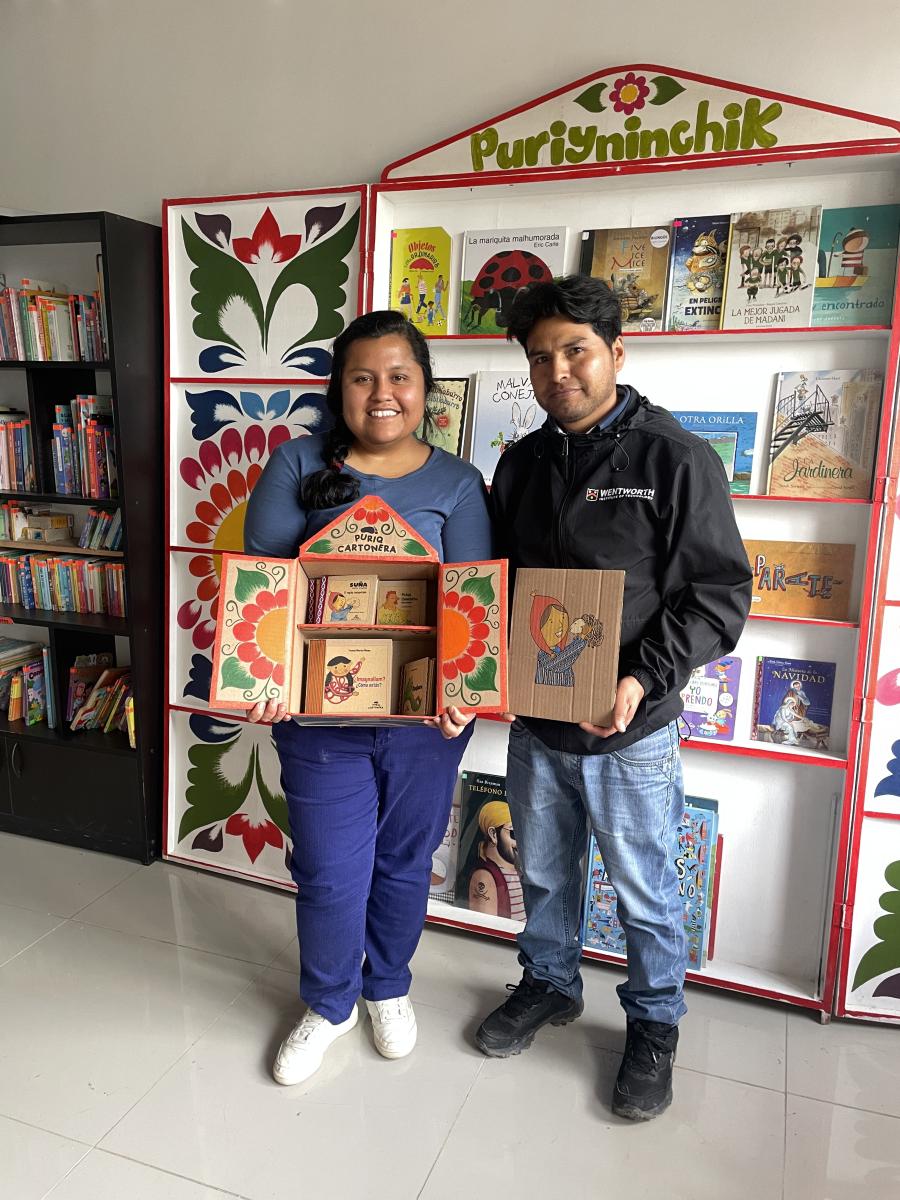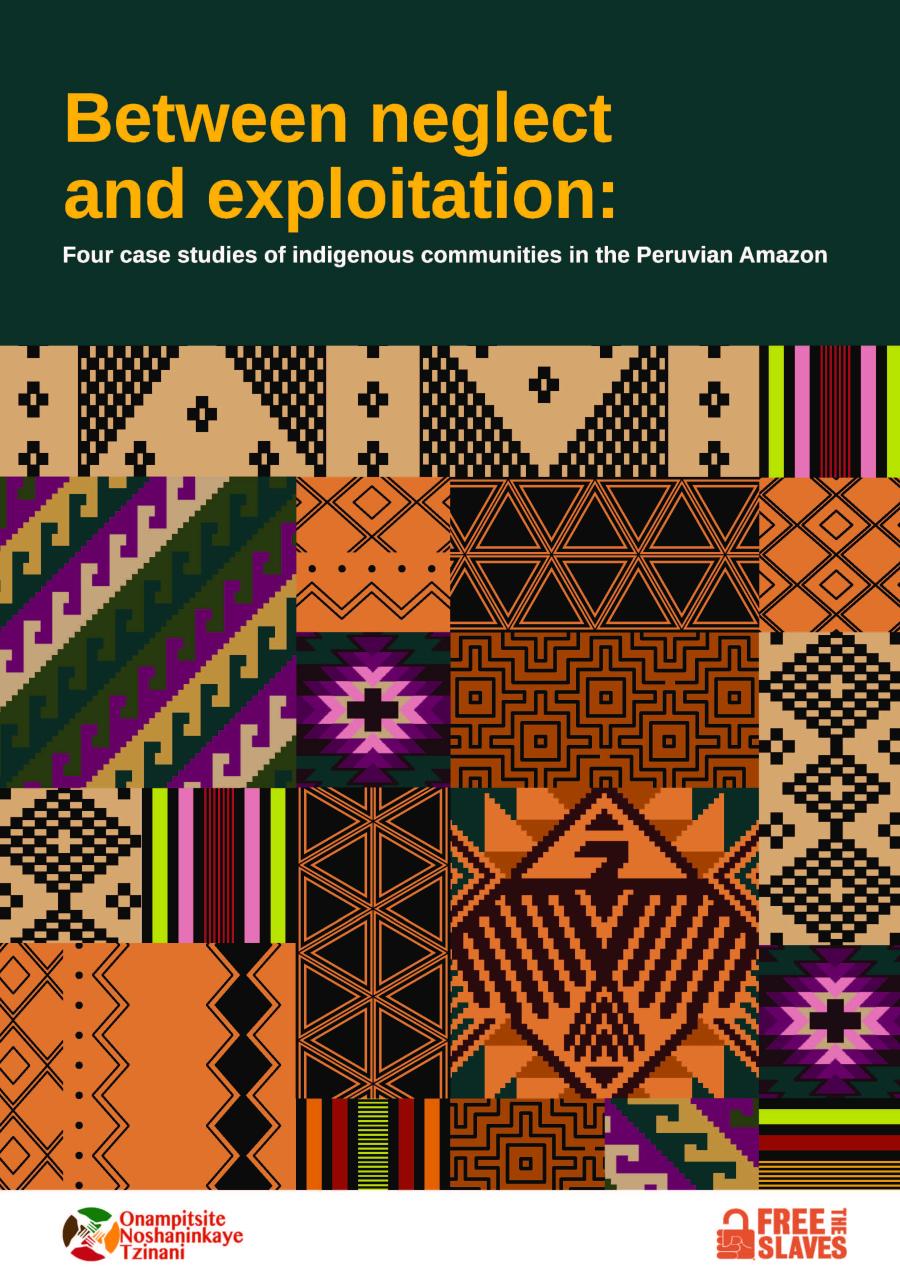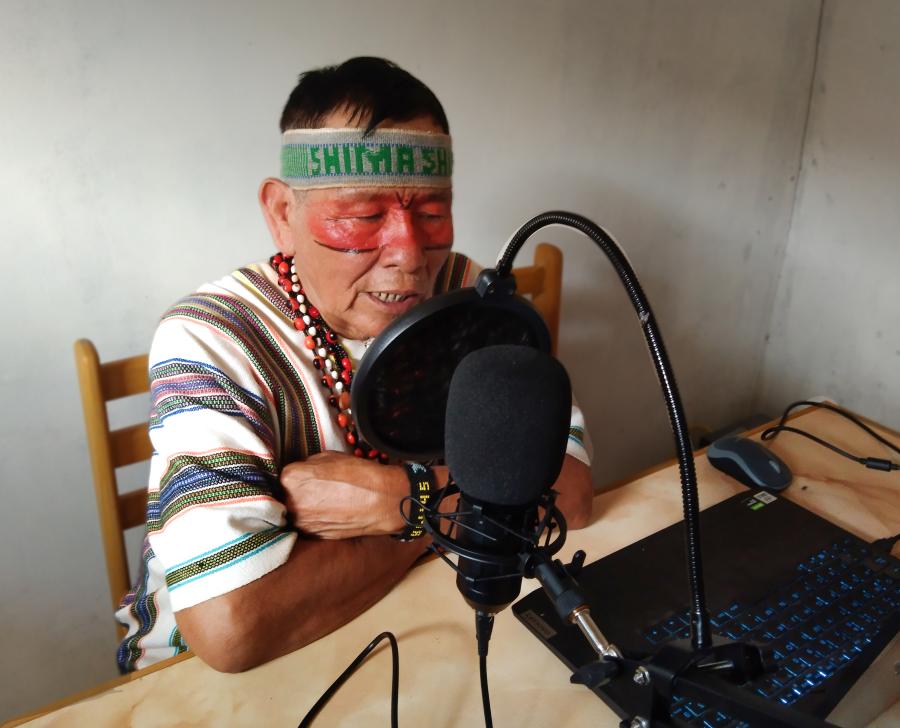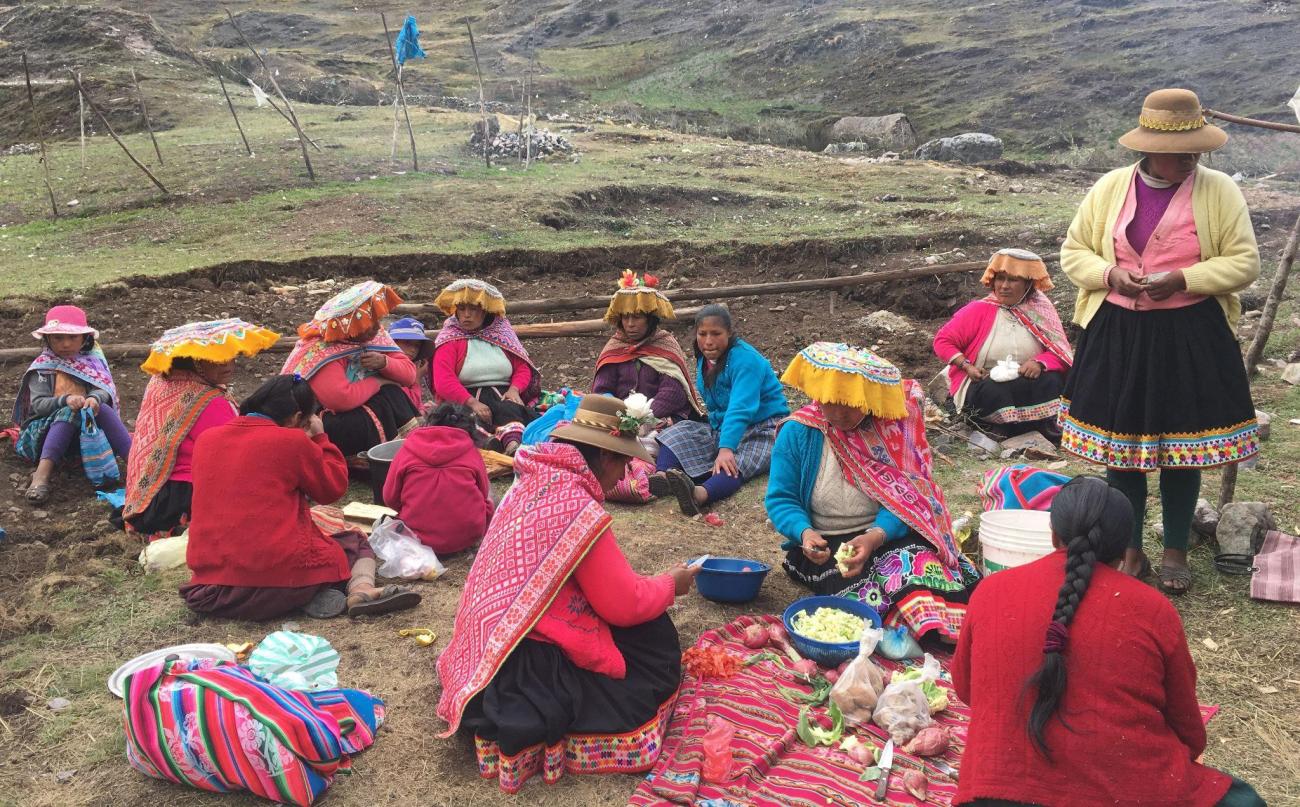
By Asociación ANDES
Despite their rich biocultural heritage, agricultural lands, and biodiversity, Quechua communities in the Lares Valley of Cusco, Peru, are amongst the most economically impoverished in the region. Threats to the land and food sovereignty to Indigenous communities of Lares include increased mining activity, climate change, and economic neo-liberal policies. At the same time, Indigenous communities maintain many traditional practices, including the use of the Quechua language, a vision of well being based on the Andean concept of Sumaq Kawsay (Buen Vivir or harmonious living), and an active Mercado del Trueque (barter market) system. Cusco-based NGO Asociación ANDES has been collaborating with the communities of Lares for the past fifteen years to implement the Parque Chalakuy to strengthen Indigenous agrobiodiversity conservation efforts; Indigenous claims to territory, land, and water; and support innovative and sustainable livelihoods.
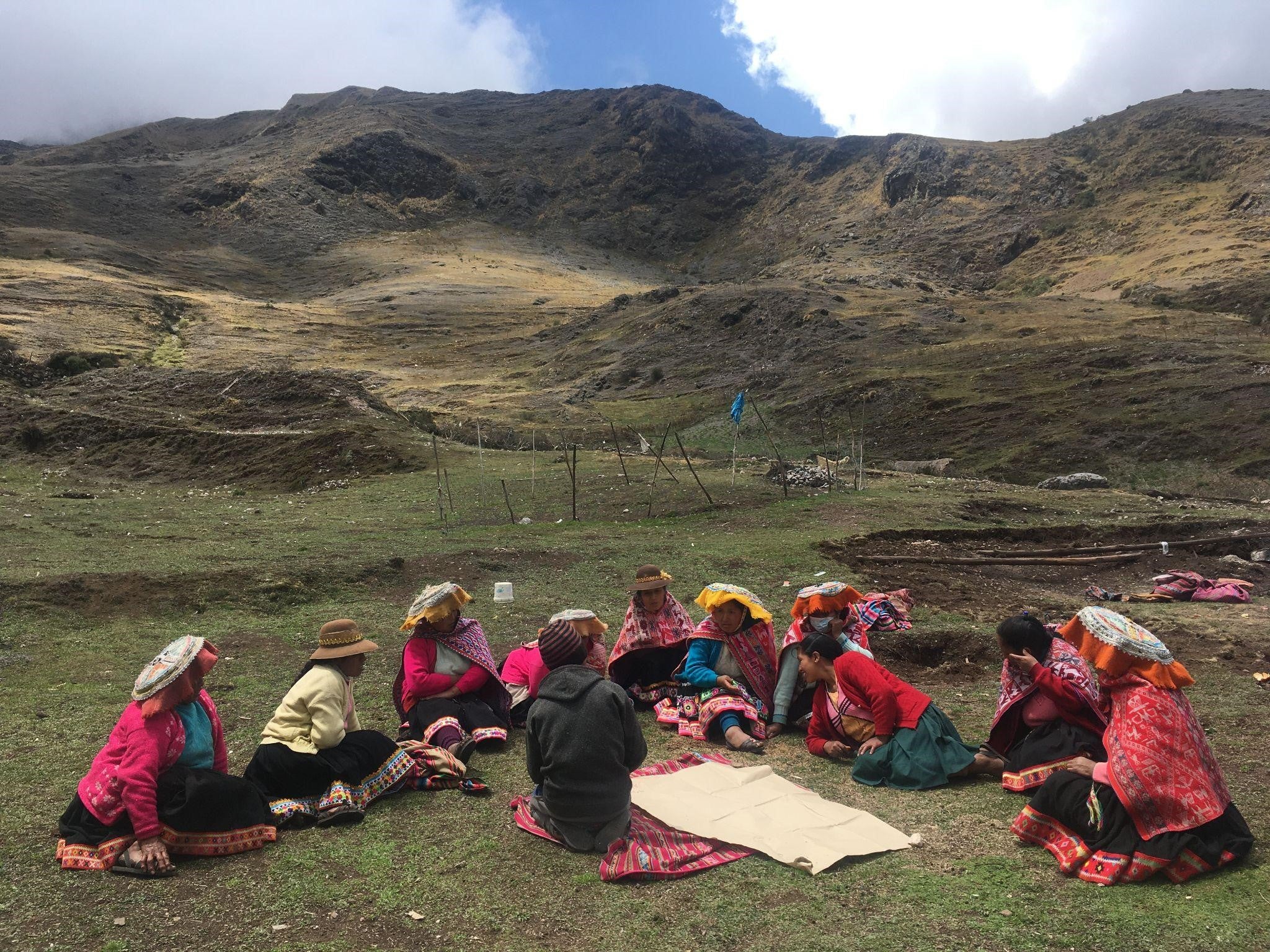
In 2017, Asociación ANDES began working with local leaders and experts in Lares to produce radio programs to disseminate information about Indigenous biocultural heritage, agroecological methods, and nutrition. Utilizing the existing radio infrastructure in Lares, Radio Sumaq Kawsay reaches all 23 communities in the district. These rural communities still have limited access to phone service and no internet; thus, radio remains the primary means of communication in the area and nearly all 6,000 residents tune in to listen to radio programming for at least a few hours each day.
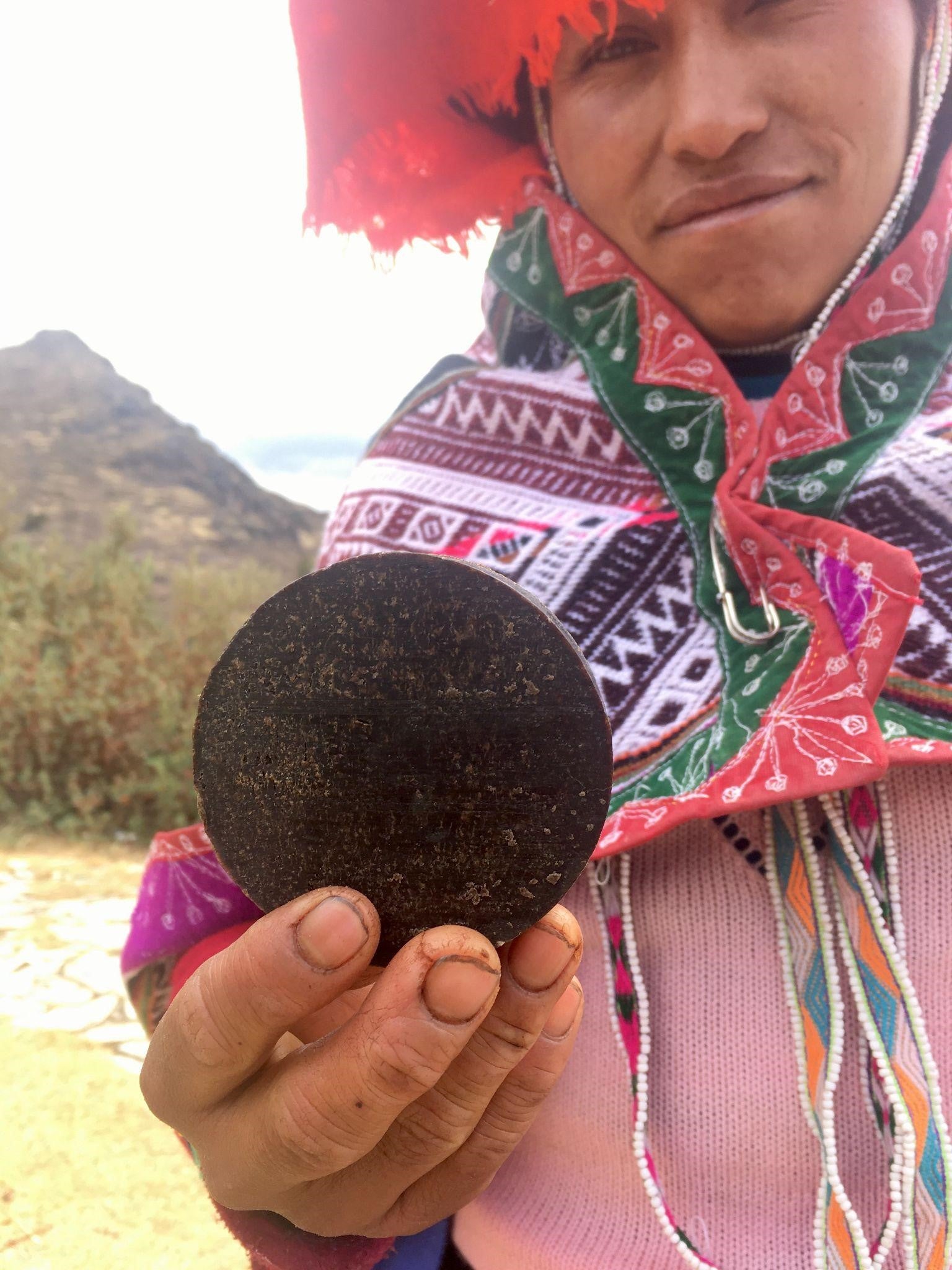
Radio Sumaq Kawsay took on new importance in the context of the COVID-19 pandemic, providing vital information about the health crisis locally, nationally, and globally in Quechua. With the generous support of Cultural Survival's Indigenous Community Media Fund, Asociacion ANDES and the Parque Chalakuy expanded Radio Sumaq Kawsay’s programming to transmit weekly broadcasts focused on local strategies for confronting COVID-19 while continuing to broadcast practical and educational information related to the annual agricultural cycle. This radio programming, produced entirely in the local Quechua language, filled a critical gap in health information, which was largely being distributed in Spanish and often had limited relevance in the context of rural Indigenous community life. Radio Sumaq Kawsay simultaneously promoted the sharing of traditional knowledge and medicinal practices to alleviate COVID-19 symptoms and strengthen immune systems.

Radio Sumaq Kawsay produced radio programs touching on a broad range of topics, from nutrition to mental health to tips for soil maintenance. For an hour each Saturday, community members throughout the Lares Valley can listen to programming that not only connects them to each other, but also to the biocultural heritage and traditional knowledge which has seen their peoples through centuries of crises and triumphs. Beyond the practical implications of radio communications, Radio Sumaq Kawsay serves as a reaffirmation of the importance of traditional knowledge and practices during a remarkably challenging year. As the world seemed to come to a halt, with so many cracks in globalized systems suddenly starkly visible, the communities of Lares continued their annual cycle of planting and harvest. The communities of Lares have reported zero COVID-19 related deaths since the beginning of the pandemic, evidence that their local agrobiodiversity and traditional knowledge has once again sustained them through this crisis. The weekly radio program at Radio Sumaq Kawsay is an opportunity to celebrate this biocultural wealth. Radio Sumaq Kawsay's work illustrates the importance of radio communications in Indigenous communities, especially in a time of crisis, and how dedicated programming to the transmission of traditional knowledge supports community resiliency.
Radio Sumak Kawsay was supported by Cultural Survival with a grant from the Indigenous Community Media Fund in 2020. Cultural Survival’s Indigenous Community Media Fund provides opportunities for international Indigenous radio stations to strengthen their broadcast infrastructure and systems and creates training opportunities in journalism, broadcasting, audio editing, technical skills, and more to Indigenous community radio journalists around the world. In 2020, the Indigenous Community Media Fund supported 35 media projects in 8 countries, totaling $214,000.
